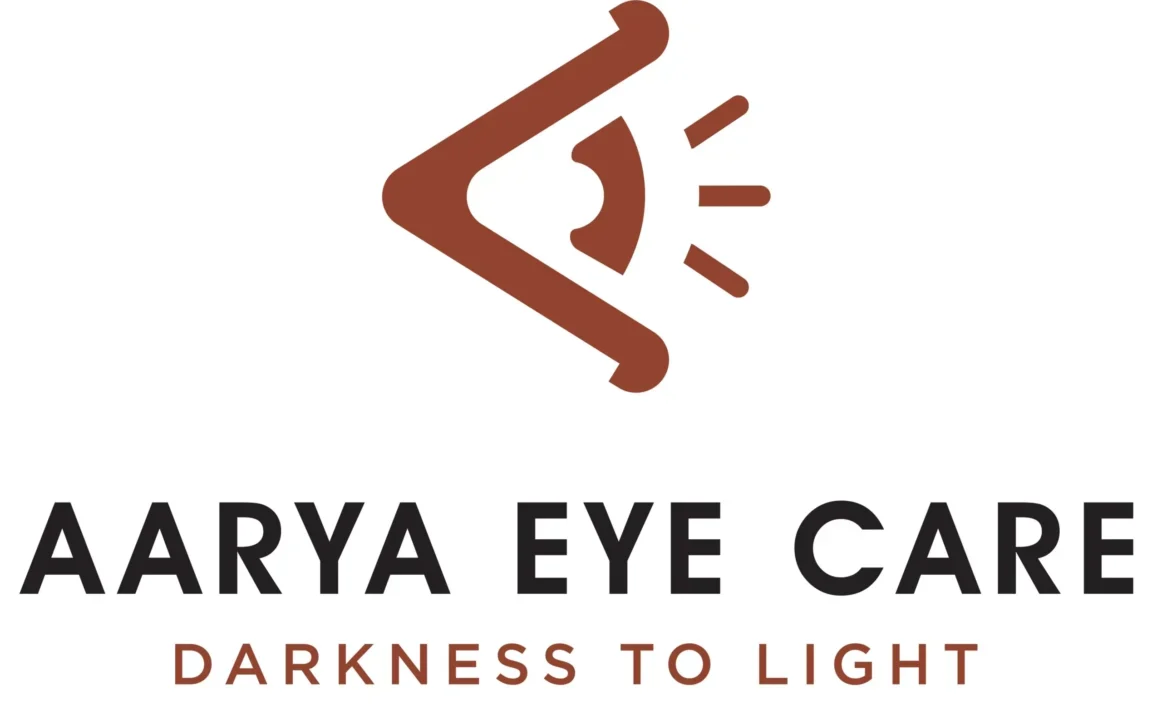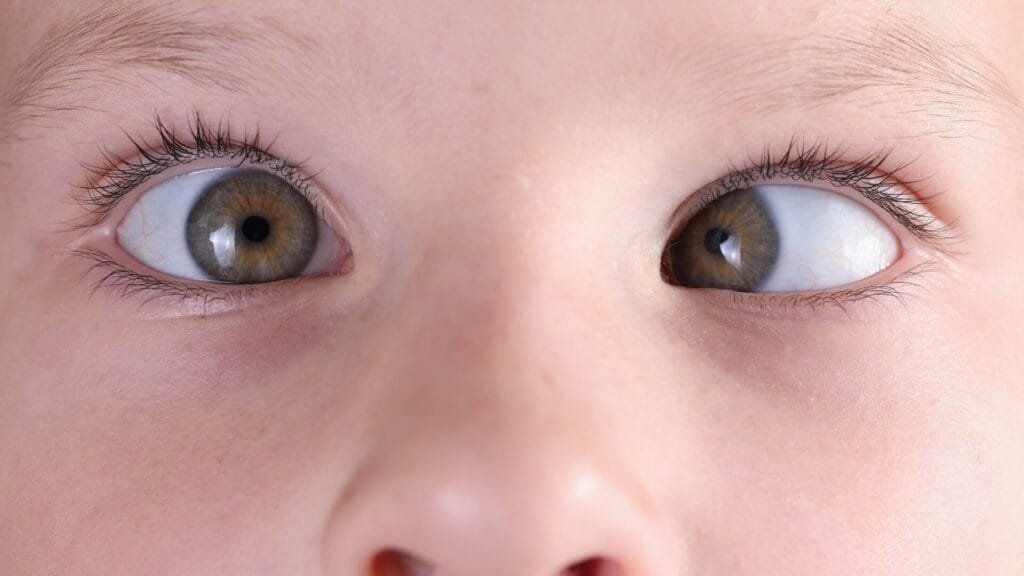Vision Problems After 40: What Changes Are Normal, and When to See a Doctor?
Any person over the age of 40 starts to experience changes in the functional and structural properties of the human eye that may affect the clarity and comfort of vision. Most of these changes are age-related changes that occur normally; however, others could be indicators of conditions affecting the eyes that need further assessment. Knowing the distinction between regular aging vision problems after 40 and symptoms that cause alarm is prime.
At Aarya Eye Care, an NABH-certified facility with over three years of expertise in advanced ophthalmology, our focus is on early detection, precision diagnosis, and personalized treatment. We are committed to delivering the highest standards of eye care at the best eye hospital in Thrissur.
Common Vision Changes after Age 40
Focusing capacity and the natural lens of the eye starts to weaken, as a person grows older. Common visual problems that are seen in people after 40 years are given below.
Presbyopia
Presbyopia is an age-related difficulty in near vision caused by decreased lens flexibility, which commonly begins between ages 40 and 45. The major symptoms of Presbyopia are difficulty focusing on near objects, holding reading materials at a distance, eyestrain during close-up tasks. It can be managed by prescription reading glasses, bifocals, progressive lenses, or contact lenses.
Dry Eyes
Dry Eyes are mostly seen by decline in tear production or poor-quality tears and the symptoms are grittiness, burning sensation, intermittent blurring, and photophobia. Hormonal shifts, environmental exposure, and digital screen use are the common contributing factors of dry eyes. The treatment of dry eyes is using lubricating eye drops, punctual plugs, and clinical therapies offered at Aarya Eye Care.
Increased Light Sensitivity & Night Vision Disturbance
Increased light sensitivity & night vision disturbance are some of the common eye changes after 40. People face changes in pupil size and lens clarity reduce the eye’s ability to adapt to low-light environments. Glare while driving at night, difficulty adjusting to darkness are the symptoms and it may affect night driving and indoor visibility in dim settings.
Floaters and Flashes
Floaters are small specks or cobweb-like shadows. Flashes are sudden bursts of light. The normal vs. pathological signs such as occasional floaters are often benign, but sudden onset of numerous floaters or associated flashes can indicate retinal detachment. The effective clinical advice is to do immediate consultation if necessary for new or worsening floaters and flashes.
Warning Signs That Need Immediate Medical Attention
Certain vision problems after 40 should never be ignored, as they may signal serious eye conditions that need prompt medical attention.
Symptom | Possible Cause | Recommended Action |
Sudden loss of vision | Retinal detachment | Emergency referral |
Distorted or blurred central vision | Age-related macular degeneration | Comprehensive eye examination |
Tunnel vision | Glaucoma | Ongoing monitoring and treatment |
Frequent prescription changes | Diabetic retinopathy | Diabetic eye screening |
Cloudy or hazy vision | Cataracts | Surgical consultation |
Why Regular Eye Exams After 40 Matter
Many sight-threatening vision problems after 40 remain asymptomatic in their early stages. Periodic comprehensive eye exams helps to identify with it:
- Early identification of glaucoma, diabetic retinopathy, and age-related macular degeneration.
- Monitoring systemic health such as hypertension and diabetes can be detected through retinal evaluation.
- Focused vision care plans help to maintain ocular health and quality of life.
At Aarya Eye Care, we provide advanced diagnostic testing and full ocular assessments as part of our commitment to preventive eye care.
How Aarya Eye Care Helps
With over 3 years of trusted clinical practice in Kerala, we are NABH-certified eye care centers with great reputation for quality and safety. Our highly advanced diagnostic tools for retina, cornea, glaucoma, and refractive errors provide accurate results. We have an expert team of ophthalmologists with subspecialty training with customised treatment plans prioritising long-term visual health. Moreover, Aarya eye care is recognised as the Best Eye Hospital in Thrissur for excellence in clinical care.
Trans PRK for Vision Correction After 40
Refractive errors such as myopia, hyperopia, or astigmatism often coexist with presbyopia after 40. Trans PRK surgery is a blade-free, flapless laser vision correction technique that may benefit select patients in this age group.
What is Trans PRK?
Trans PRK surgery is a no-touch laser refractive surgery that removes the epithelium and reshapes the cornea. It differs from LASIK and traditional PRK by avoiding mechanical instruments or corneal flaps. Especially Trans PRK surgery suitable for patients with thin corneas or dry eye tendencies.
Is Trans PRK Suitable After 40?
Trans PRK surgery is suitable for individuals with stable prescriptions, mild to moderate refractive errors, and no contraindications. Patients with presbyopia, along with other refractive conditions, may benefit from a customized correction plan. A comprehensive preoperative corneal mapping is critical to ensure suitability.
Advantages of Trans PRK
Advantages of Trans PRK is it reduces risk of flap complications and less postoperative dry eye. Trans PRK surgery is stable and predictable outcomes and it ensure faster surface healing compared to traditional PRK
Risks and Recovery
The risks and recovery of Trans PRK surgery is mild discomfort, light sensitivity, or tearing in the initial recovery phase. The visual recovery typically occurs over 3-5 days and patients receive close follow-up and postoperative support at Aarya Eye Care to ensure optimal healing.
What we offer in our Trans PRK
Our Trans PRK service utilises the advanced German-engineered Schwind Amaris excimer laser with a 70-point corneal mapping system to track and compensate for 7-dimensional eye movements during the procedure, enhancing surgical accuracy and safety. The integrated PresbyMAX module is designed to correct presbyopia, or age-related near-vision decline, by reshaping the corneal surface to improve both distance and near focus. This technology allows for a personalised, minimally invasive treatment approach specialized to the visual needs of patients over 40.
Tips for Healthy Eyes After 40
Maintain visual wellness by adopting the following practices:
- Annual eye exams for timely detection of issues
- Consume nutrient-rich foods—leafy greens, fatty fish, and vitamin A sources
- Control blood sugar and blood pressure through regular checkups
- Use UV-protected sunglasses to guard against photo damage
- Reduce screen exposure and practice the 20-20-20 rule to prevent digital eyestrain
When to See a Doctor
Seek immediate consultation if you notice if you face any sudden onset of blurry or double vision or recurrent headaches related to eyestrain. Poor night vision or light halos need attention. New or worsening floaters and flashes are also an important symptom. In addition, if you have a family history of eye disease or diabetes
Conclusion
People face some vision problems after 40 is a part of natural ageing, and certain symptoms can indicate conditions that are more serious. Proactive eye screening is essential to safeguard long-term vision.
At Aarya Eye Care, recognised as the Best eye care hospital in Thrissur, we provide comprehensive support for all age-related vision issues, including Trans PRK surgery for eligible patients. Our medical team ensures each patient receives high-standard care tailored to his or her needs.
Contact Us Today or Book an Appointment to take the next step in your vision care journey with Aarya Eye Care, Kerala.








